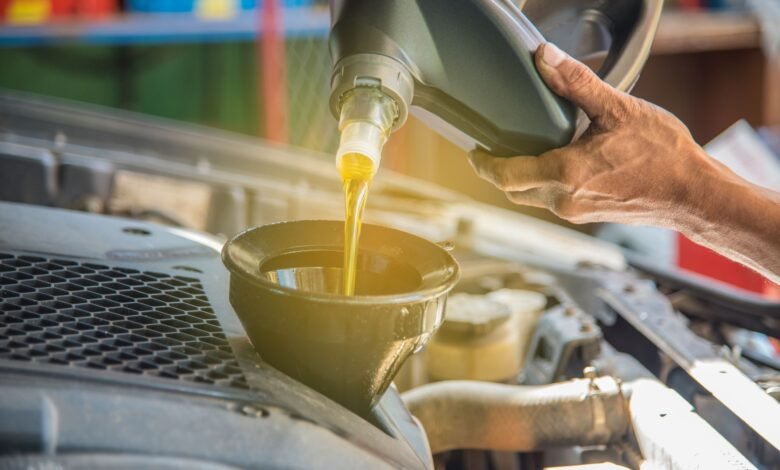Understanding Engine Oils – Which One is Right for Your Vehicle? A guide by Automize

The Role of Engine Oil in Lubrication and Cooling
Engine oil is one of the most crucial fluids in a vehicle, serving as a lubricant, coolant, and protector of internal components. It reduces friction between moving parts, preventing wear and tear while ensuring smooth operation. Additionally, engine oil helps in heat dissipation, keeping the engine temperature regulated and preventing overheating. Without proper lubrication, metal components can grind against each other, leading to severe engine damage and costly repairs.
Beyond lubrication, engine oil also plays a role in cleaning the engine. It carries away contaminants, dirt, and debris that accumulate over time, preventing sludge buildup that can compromise performance. Using the right oil ensures that your engine remains efficient, well-protected, and long-lasting.
Different Types of Engine Oils: Conventional, Synthetic, and Semi-Synthetic
Not all engine oils are the same, and choosing the right type for your car is essential for optimal performance. The main types of engine oils include:
Conventional Oil
Conventional motor oil is derived from crude oil and is the most basic form of lubrication available. While it provides adequate protection, it tends to break down faster under high temperatures and requires more frequent changes. This type is suitable for older vehicles or those with simpler engine designs that do not demand advanced lubrication properties.
Synthetic Oil
Synthetic oils are engineered for superior performance, offering better resistance to temperature extremes, reduced friction, and longer-lasting protection. They contain fewer impurities than conventional oils and provide excellent lubrication even in harsh conditions. Synthetic oils are ideal for modern high-performance engines, turbocharged vehicles, and those operating in extreme climates.
Semi-Synthetic Oil
Semi-synthetic oil, also known as synthetic blend oil, is a mix of conventional and synthetic oils. It offers better performance than conventional oil at a more affordable price than full synthetic. This type is often recommended for vehicles that need improved protection but do not necessarily require fully synthetic oil.
Common Myths About Engine Oils
Despite engine oil being a fundamental aspect of car maintenance, several misconceptions exist.
Myth 1: You Must Change Your Oil Every 3,000 Kilometers
While this was true for older vehicles, modern engines and high-quality synthetic oils allow for extended oil change intervals, often ranging between 5,000 to 10,000 kilometers or even longer, depending on the manufacturer’s recommendation.
A premium synthetic oil such as Honda SP 0W-20 ILSAC-GF6 Genuine Engine Oil – Fully Synthetic can help extend drain intervals and provide superior engine protection. This oil meets the latest industry standards and is formulated to improve fuel economy and engine life.
Myth 2: Synthetic Oil Causes Leaks in Older Cars
Synthetic oil itself does not cause leaks; however, its superior cleaning properties may expose pre-existing leaks in an aging engine by removing sludge that was previously sealing small cracks.
For those who switch to synthetic oil in older cars, Koch Chemie MP Motor Plast Special Engine Conserver helps to maintain engine seals and prevent leaks. Synthetic oil will not dry or shrink older engine seals, and it conditions rubber components.
Myth 3: You Can Use Any Oil as Long as It’s for Cars
Not all oils are the same. Using the wrong viscosity or failing to meet your car’s manufacturer specifications can reduce engine efficiency and increase wear over time.
To get the best performance and protection, you need to use a high quality oil that is suitable for your vehicle, such as the Toyota SP 0W-20 GF-6A Genuine Motor Oil – Synthetic. This oil is specifically designed to offer maximum fuel economy, minimize engine wear and provide excellent thermal stability.
How to Choose the Right Oil for Your Car Based on Viscosity and Specifications
Choosing the right engine oil requires you to know about viscosity ratings and manufacturer recommendations.
Viscosity Matters
The viscosity of the oil is the thickness of the oil and how well it flows at different temperatures. Usually, it is represented by numbers like 5W-30 or 10W-40, where:
The first number (e.g., 5W) refers to how well the oil flows in cold temperatures. The lower the numbers, the better the cold weather performance. The second number (e.g. 30) is viscosity at high temperatures. The higher the value, the thicker the oil will be at operating temperatures, and thus, the better the protection.
Manufacturer Specifications
The recommended oil type is specified by the car manufacturers based on engine design. API SN, ACEA A3/B4, or ILSAC GF-6 certification is what your vehicle will need, and checking your vehicle’s manual will help you know this. Oil that meets or exceeds these standards is compatible with your engine.
Automize: One Stop Solution for Car & Maintenance Products in Pakistan
The engine oil you choose plays a major role in maintaining smooth and efficient running of your vehicle. Viscosity, oil type and manufacturer recommendations clarify the best protection for your engine. Automize provides a variety of high performance engine oils and additives for all types of vehicles if you are looking for premium quality engine oils. Check out our collection now to care for your engine.




